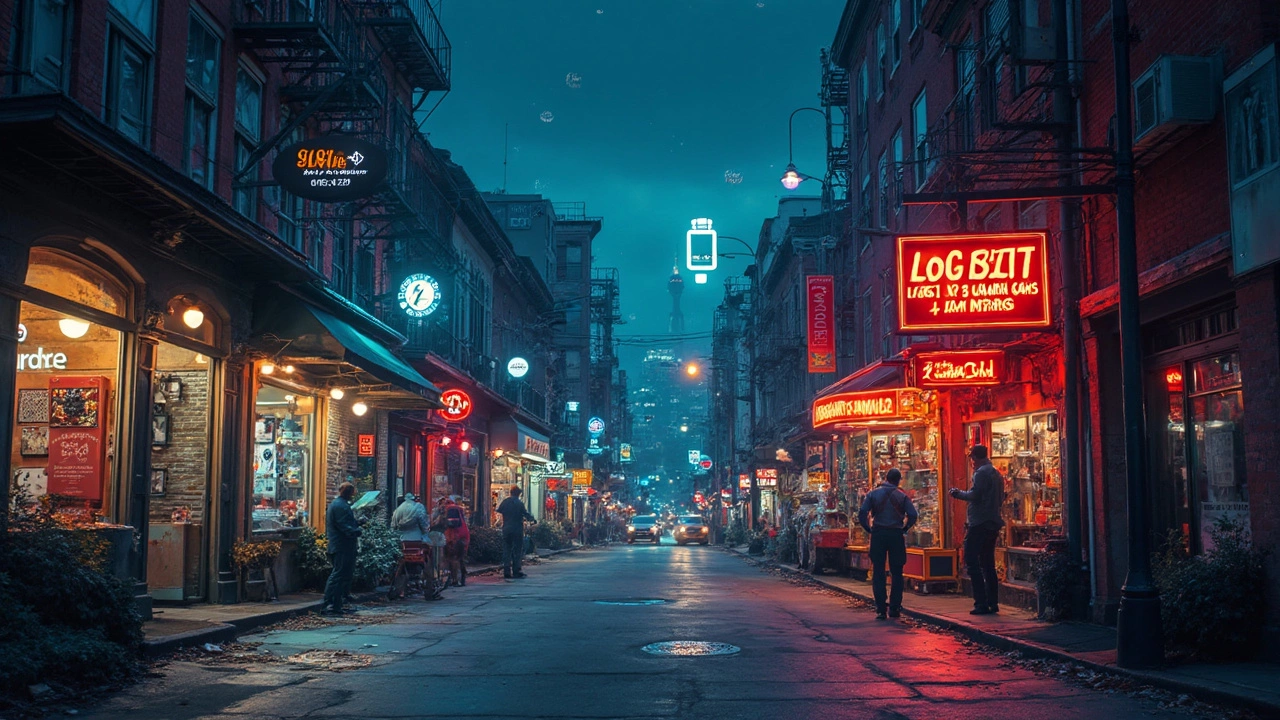Locked out at 2 a.m. with nobody to call? You're not alone—across the US, locksmiths keep our doors, cars, and businesses safe. You’d be surprised just how many people rely on lock and key experts every single day—way more than you think. Ever wondered just how many locksmiths it takes to keep the entire country running smoothly? Get ready, because the numbers, stories, and some lesser-known facts might just change the way you look at these everyday heroes.
The Real Number: How Many Locksmiths Are in the US?
It’s the million-dollar question—literally, when you think about how valuable the locksmith industry is. So, how many locksmiths are working across the States? According to the US Bureau of Labor Statistics (BLS) as of May 2024, there were about 22,350 locksmiths working in the country. This figure might seem small considering the sheer size of the US, but it's actually enough to create a network that covers both busy cities and sleepy towns.
Now, don’t be fooled by just the official count. There are lots of freelance locksmiths and folks working part-time, especially in rural areas, that may not pop up in big databases. Some estimates from trade associations, like the Associated Locksmiths of America, put the number of people with locksmith training or who offer locksmith services (part-time, full-time, side hustles, mobile van techs, and everything in between) as high as 35,000. The difference between licensed, official, and “moonlighting” professionals is real. Some states regulate the field tightly—think Texas and California, where locksmiths need to be licensed and background-checked, while other places don’t even ask for a license. That leads to a bigger “gray” area in states with less oversight or smaller populations.
Not all locksmiths are created equal, either. Some specialize in automotive locks, others in home and business security, and a handful are experts in old-school safes. So if you’re looking for someone to unlock your 1920s city bank vault, that’s a specific expert, not your regular door-unlocker from the corner hardware store.
| Year | Estimated Locksmiths (BLS) | Industry Estimate (Trade Groups) |
|---|---|---|
| 2020 | 19,100 | 28,000 |
| 2022 | 20,400 | 32,500 |
| 2024 | 22,350 | 35,000 |
So, if you search online for “locksmith near me” anytime soon, know that you’re tapping into an army—small but mighty—of skilled pros. Their numbers may seem modest, but their impact is everywhere, and they aren’t going anywhere soon.
What Qualifications and Training Do Locksmiths Need in the US?
Think it’s just about jiggling keys and cracking safes like the movies? Nope, becoming a locksmith is more technical—and legal—than you might guess. Most states don’t require a college degree for locksmiths, but many employers prefer applicants who have completed formal training. That usually means materials science (how locks are made), electronic security systems, and a decent amount of hands-on work. Technical colleges and online schools now offer locksmith programs that can take anywhere from a few months to a year. But it’s not always about passing a class; plenty of locksmiths learn by apprenticing with someone who’s been in the business forever.
Regulations are another layer. Fifteen states and the District of Columbia require locksmiths to have a license. If you’re working in Texas, California, Alabama, Illinois, or New Jersey, you’ve got to pass a criminal background check, sometimes present fingerprints, and often prove you’re up for the challenge with a written test. In states without licensing, there’s wide range in skill out there—sometimes you get an absolute pro, sometimes an amateur with a hammer and guesswork. One survey from Locksmith Ledger (2023) found that 64% of locksmiths in strict-license states reported better business and more trust from customers—people like knowing their security is in professional hands.
Modern locksmithing isn’t just about tumbler locks anymore. With smart locks, keyless entry, and even biometric technology taking over, a successful locksmith now keeps up with tech on par with folks in IT. Some even specialize in car computers and electronic safe resets. Online forums are full of Gen Z and Millennial locksmiths swapping tips about programming car remotes or out-smarting “impossible” Wi-Fi deadbolts. If you’re thinking about hiring a locksmith, ask if they’ve worked with electronic systems, especially if your security isn’t just a traditional lock and key.
According to security expert John Grimmer, “Today’s top locksmiths are part-troubleshooter, part-technician, and part-security consultant—all rolled into one.”
These days, certifications from trade groups (think ALOA or SAVTA) boost reputations and trust. Insured and bonded locksmiths usually land more business, too. That's a good pro tip: Always ask about certification and insurance before letting anyone near your locks. It’s like checking a plumber’s credentials—you don’t want to gamble with your home’s security.

Where Are Locksmiths Located? State and City Hotspots
The “locksmith density” (yeah, that’s a thing) varies a ton from state to state. Unsurprisingly, the biggest states by population lead the pack: California, Texas, Florida, and New York have the most locksmiths, with thousands working in the urban sprawl of LA, Dallas, Miami, and NYC. These metro areas buzz around the clock, thanks to high homeownership, lots of cars, high business density, and, let’s face it, more people locking themselves out of stuff. In Los Angeles alone, there are well over 1,200 registered locksmiths. In New York City, locksmith storefronts and van-based mobile techs jointly serve millions of households, offices, and tourists who lose keys at record speed.
But it’s not just big cities with locksmith action. Even rural areas need someone to rely on when a tractor’s ignition won’t turn or the farm’s barn lock breaks. In Montana, the average locksmith might cover a territory of several counties, making house or barn calls that could be hours apart. Meanwhile, in Arizona, retirement communities have their own preferred locksmiths, trusted for discreet home security upgrades or lost mailbox keys. In college towns, business spikes each semester as students move in, move out, and misplace keys in astonishing numbers.
Demand goes sky-high in tourist spots, airports, and business districts. Keys get lost at music festivals, inside rental cars, or during international business trips—locksmiths who market to hotels, Airbnb hosts, or property managers can carve out a pretty lucrative niche.
There are also mobile-only locksmiths—guys and gals who operate out of vans, equipped with advanced key-cutting machines, programming tools, and enough spare parts to build a small lock museum. Some focus solely on emergencies, while others schedule by appointment for major lock upgrades, safe installations, or big security projects in wealthy suburbs. This flexibility has helped the profession stay busy even when other trades slow down.
| State | Licensed Locksmiths (2024) |
|---|---|
| California | 3,700 |
| Texas | 2,900 |
| Florida | 2,300 |
| New York | 2,100 |
| Illinois | 1,200 |
Wherever you are, there’s almost always a locksmith ready to tackle residential, business, or vehicle lockouts—though the wait can be longer in small towns. If you're moving, starting a business, or worried about old locks on your new place, finding a local, reputable locksmith can be the difference between a nightmare and peace of mind.
Fun Facts and Myths About Locksmiths
When you picture a locksmith, you might think of a mysterious guy with a ring of keys, sneaking around like in old movies. Reality couldn’t be more different! Here’s some stuff you probably didn’t know:
- The world’s oldest known lock was found in ancient Nineveh (now Iraq) and is about 4,000 years old. Today’s locksmiths have to know tech that didn’t even exist five years ago!
- Contrary to what you see on TV, real locksmiths don’t “pick” most locks for emergencies—they use special tools, bump keys, or decode digital keypads. Plus, they’re careful not to leave marks so your security isn’t compromised.
- Getting locked out isn’t just a city thing. In farm country, locksmiths are routinely called to open tractor ignitions, barn doors, and even chicken coops (nobody wants a fox getting in).
- A typical journeyman locksmith in the US earns around $52,000 per year, though top emergency techs in cities or those handling big commercial clients can double that.
- “24/7 locksmith” isn’t just a marketing gimmick—the busiest times are actually after 9 p.m., especially on holidays and weekends. New Year’s Eve, believe it or not, is the busiest night for lockouts in America!
- There’s a secret handshake and even inside jokes among locksmiths about “impossible lockouts”—but they take their code of ethics seriously. Almost all refuse jobs that feel “off” or involve questionable circumstances.
- Pet rescue calls happen. Some locksmiths find themselves opening doors for not just humans, but cats, dogs, and in one notorious case, a runaway iguana.
- Locksmithing is a family trade for a lot of folks—trade secrets, tips, and tool tricks often get passed down for generations.
If you want to make sure you’re calling a real pro, ask if they’re part of the Associated Locksmiths of America—it’s kind of like a good housekeeping seal for the industry.

Tips for Finding and Working with a Good Locksmith
If you’re locked out, panic is the enemy. Here’s how to turn a bad day around and pick the right locksmith—because not all are the same:
- Search local first. National hotlines often just resell leads; find someone with a local address, reviews, or membership in a trade group.
- Get a flat estimate over the phone, not just “we charge a base fee.” A real pro will tell you an honest price range.
- Look for the locksmiths in the US keyword or association badge on websites or vans. It’s a sign they care about reputation and legal standards.
- Always check ID and license. Legit locksmiths carry both, even for routine calls like mailbox changes.
- Pay by card if you can, so there’s a paper trail. Avoid anyone who insists on cash-only upfront.
- If a price changes dramatically after the job starts, politely decline and call someone else. Price-gouging is a shady move in this business.
- Ask about warranty or guarantee on labor and parts. Genuine locksmiths usually offer at least a year on new locks or installations.
- It’s smart to save a trusted locksmith’s number in your phone—when you’re locked out, you’ll be glad you’re not just Googling random strangers.
And here's something most folks miss: if you’re moving into a new place, rekey your locks even if you think the previous folks handed back all the keys. You have no idea who else may have spares.
The next time you're locked out or want to upgrade your security, remember you're dealing with an unheralded, surprisingly organized workforce. Whether working from a city shop or a rural van, these folks make sure you can get back in—discreetly, legally, and with just enough secret know-how to keep things safe. Who knew a job so old-school could be so indispensable?





Write a comment